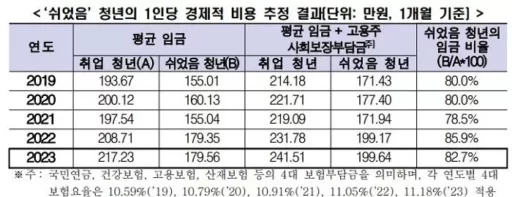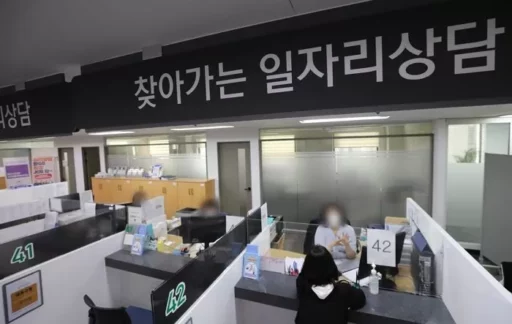Increase in 'NEET' Youth Population Causes 53 Trillion KRW Economic Loss Over 5 Years
The economic loss caused by 'NEET' (Not in Education, Employment, or Training) youth, who are not engaged in academic studies or job-seeking activities, has reached 53 trillion KRW over the past five years.
While the youth population is showing a declining trend, the number of 'NEET' youth has increased, recording the highest level ever as of last month.

On the 18th, the Korea Economic Research Institute announced these results through a study commissioned to Professor Lee Mi-sook from Changwon National University, titled 'Estimating Economic Costs Due to the Increase in NEET Youth'.
According to the Korea National Statistical Office's Labor Force Survey, the youth population aged 15 to 29 decreased from 9.66 million in 2019 to 8.79 million in 2023. However, during the same period, 'NEET' youth increased from 430,000 to 480,000.
Increase of 'NEET' Youth from 430,000 to 480,000
Worsening Labor Market Exit Among Highly Educated Youth
Notably, the number of highly educated 'NEET' youth (those with a university degree or higher) rose from 159,000 in 2019 to 184,000 in 2023. This trend is interpreted as a reflection of the cautious decision-making of highly educated youth regarding job entry, influenced by economic conditions or market circumstances.
The estimated monthly income of 'NEET' youth is approximately 1.8 million KRW as of 2023, which is about 83% of the income (2.17 million KRW) of employed youth in the same age group.

The report noted, "Youth who could earn high incomes are withdrawing from economic activities, leading to social losses."
By combining the population of 'NEET' youth by year with their expected income and employers' social security burdens, the total economic cost attributed to 'NEET' youth over the past five years is estimated to be a staggering 53.4 trillion KRW. The annual cost has increased from 8.9 trillion KRW in 2019 to 11.5 trillion KRW in 2023.
Total of 53.4 trillion KRW
Need for Measures to Promote Youth Economic Activity
The report proposed measures to encourage their economic activity, such as ▲ customized policy support based on education level ▲ early detection and information sharing system establishment ▲ psychological and recovery support programs. It suggested the necessity of programs to overcome youth lethargy, a recovery-oriented work scholarship system, and a youth companion manager system.

Lee Sang-ho, head of the Economic and Industrial Division at the Korea Economic Research Institute, stated, "The prolonged economic downturn and reduced new hiring by companies are exacerbating the employment difficulties faced by youth," adding, "Efforts to expand new employment opportunities through customized support policies along with domestic demand stimulation and regulatory easing for corporate revitalization are required."
Image source: Reference photos for understanding the article / gettyimagesbank, Korea Economic Research Institute, Reference photos for understanding the article / News1


